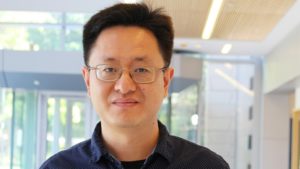First-year undergraduates through master’s graduate students are welcome to apply, and all will be encouraged to stay on the team for more than the two-semester minimum. Leadership roles are available in the lab, and experienced students will be a natural fit for these positions as their knowledge grows over time.
Below are the skills needed for this project. Students with the following relevant skills and interest in the project are encouraged to apply! Although the team consists of subteams, students apply to the project as a whole, rather than individual roles on the team.
Electronics Subteam: (4 Students)
Preferred Skills: RF circuit design/PCB layout in Altium Designer, embedded hardware and software, experience with oscilloscope, spectrometer, ADS, data link budgeting, wireless network design, DSP, software-defined radio, GNU radio, C/C++, Python, GPS/dGPS.
Likely Majors: EE, CE, and all other disciplines.
Robotics/Design Subteam: (4 Students)
Preferred Skills: Robot operating systems (ROS), embedded system design, experience with machine learning algorithms, artificial neural networks, real-time operating systems, leading software project(s), C/C++, Python, Windows/Linux.
Likely Majors: ROB, ECE-Control Systems, CE, CS, DATA.
Mechanical/Aerodynamics Subteam: (4 Students)
Preferred Skills: Computer aided design (CAD) and simulation, 3D printing, Solidworks, aerodynamics, computational fluid dynamics (CFD).
Likely Majors: ME, AERO, MSE, and all other disciplines.
Apprentice Researcher (4 Students)
Requirements: Interest in project material, willingness to develop skills. Students will be integrated into the operations of a subteam. Open to first- and second-year undergraduate students ONLY.
Likely Majors: ANY
Faculty Sponsor

Xiaogan Liang, PhD
Associate Professor, Mechanical Engineering Advanced Nanofabrication and Nanomanufacturing Technologies, and Microsystem Integration
Prof. Liang’s current research interests focus on nanofabrication, nanomanufacturing, microsystem integration, nanoelectronics and optoelectronics based on emerging nanomaterials, biosensors, and microdrone sensors. Dr. Liang has co-authored 72 journal publications and >50 conference presentations, has given >30 invited presentations, and has 8 US patents. Dr. Liang is the recipient of the NSF CAREER Award, and he is the member of Sigma Xi, IEEE, and ASME. He is also the winner of the 2019 Monroe-Brown Foundation Education Excellence Award, recognizing his dedication to his students. Dr. Liang obtained a Ph.D. in Electrical Engineering from Princeton University.Weekly Meeting Time and Location: For academic credit, our MDP team meets Fridays at 4:30pm-6:00pm ET in EECS 1008. Each subteam arranges a convenient time to meet and work together. A two-term commitment will begin January 2024.
In-person participation is expected. Some team meetings and activities may be held remotely.
Course Substitutions: Honors, ME 590, ROB 590, CS-ENGR/DS-ENGR/EE/CE-ENGR 355 and higher can count toward Flex Tech
These substitutions/departmental courses are available for students in these respective majors. MDP does not yet have a formal agreement with other departments for substitutions/departmental courses not listed. Please reach out to your home department’s academic advisor about how you might apply MDP credits to your degree plan.
Citizenship Requirements: This project is open to all students on campus.
IP/NDA: Students who successfully match to this project team will be required to sign an Intellectual Property (IP) Agreement prior to participation in January 2024
Summer Opportunity: Summer research fellowships may be available for qualifying students
Learn more about the expectations for this type of MDP project
